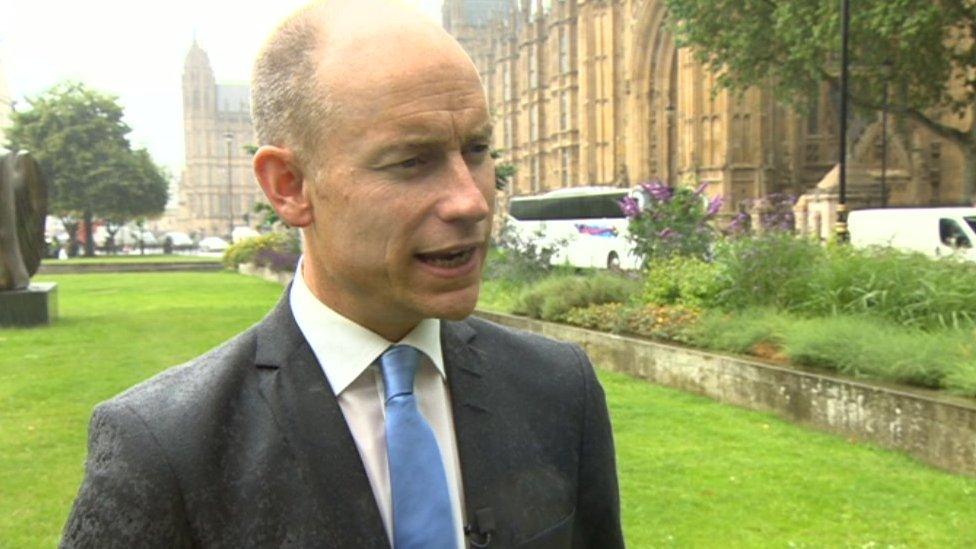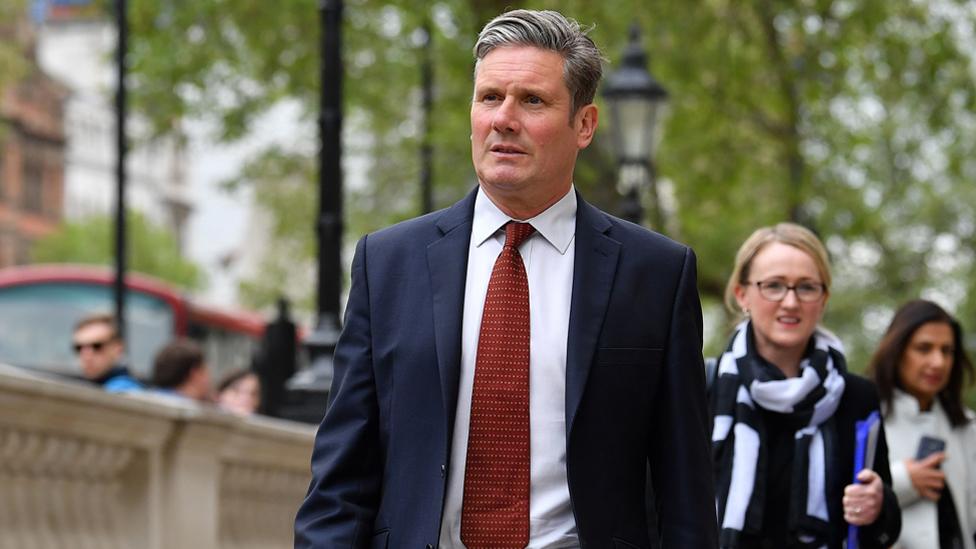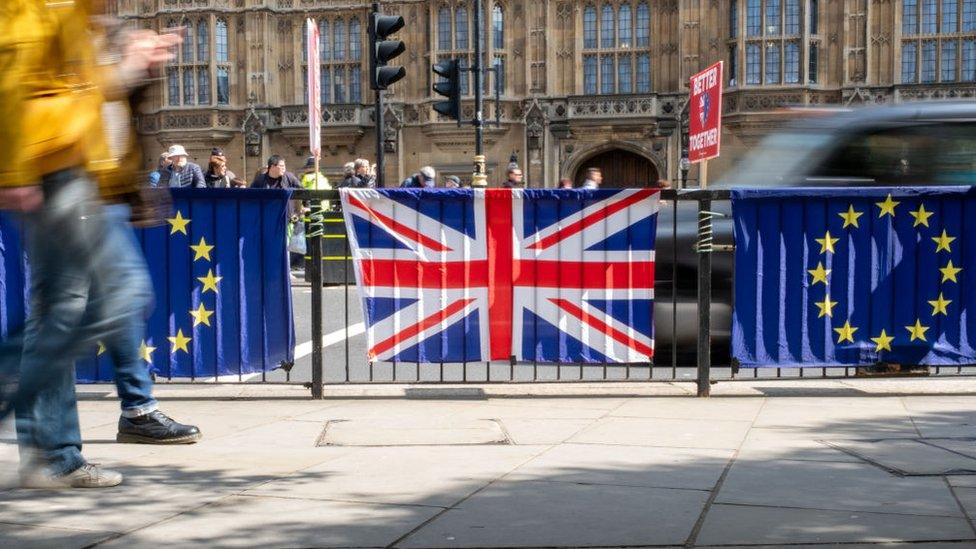Brexit: EU vote demand is 'torpedoing' Labour-Tory talks
- Published

Stephen Kinnock said the call for a further referendum is "torpedoing" discussions
Cross-party talks to break the Brexit deadlock are not succeeding because of Labour's demand for another referendum, a Welsh MP has warned.
Aberavon Labour MP Stephen Kinnock says his party's call is "torpedoing" the discussions between both main parties.
Talks between Conservative ministers and Labour over leaving the EU have been going on for a month with little sign of progress.
Half of Welsh Labour's 28 MPs have backed another public vote.
The shadow Brexit secretary Sir Keir Starmer has said a cross-party deal will not get through Parliament unless it is subject to a fresh public vote.
He suggested a referendum on the final deal had become a red line of its own for many Labour MPs, saying "a significant number, probably 120 if not 150, would not back a deal if it hasn't got a confirmatory vote".
The UK had been due to leave the EU on 29 March, but the deadline was pushed back to 31 October after Parliament was unable to agree a way forward.
Whether Labour supports a further referendum has been a matter of heated debate in the party.
Mr Kinnock, who opposes a further referendum, told BBC Radio 5 Live: "I really am very concerned that the reason that these talks are not getting any further is because the Labour party is introducing an additional red line which is that a confirmatory vote has to be inserted into the deal.
"My view is that the prime minister will never whip her side to back a deal on that basis and that is therefore torpedoing the talks."

Sir Keir Starmer has said a cross-party deal will need to be attached to a further referendum if it is to pass Parliament
He added: "I'm just struggling to understand it because those who are campaigning for a second referendum, I mean I'm assuming they know you can't have a referendum which is remain versus remain... you have to have a form of leave on the ballot paper, that means Parliament has to pass a deal."
Labour's policy is to support a further referendum on Brexit under certain circumstances.
It has rejected the idea of campaigning for one in any event, but will demand a public vote if it cannot get changes to the government's deal or an election.
- Published13 May 2019
